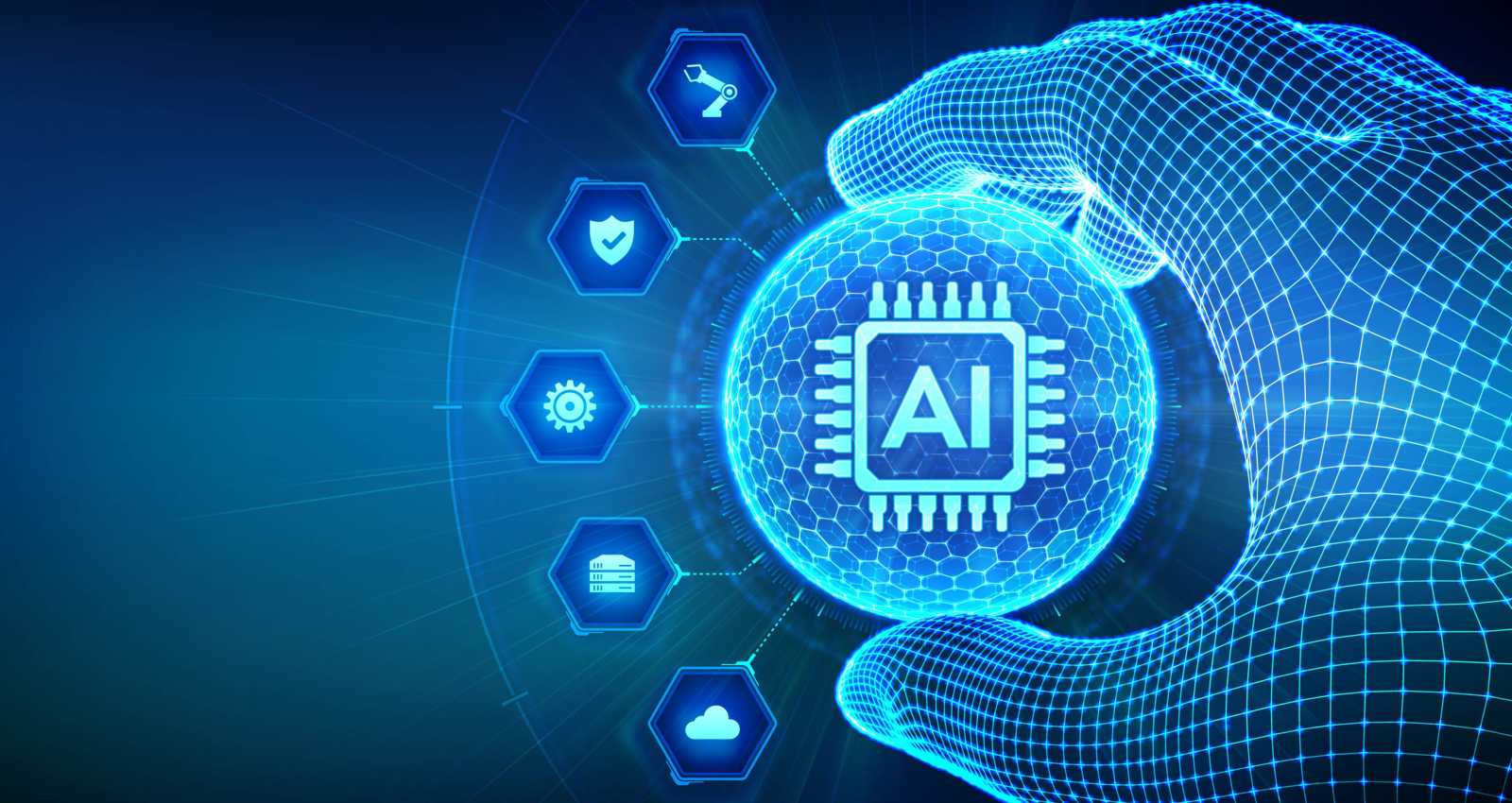Artificial Intelligence (AI) in software testing is altering the way organizations are today doing Quality Assurance (QA) in software. It is no longer a buzzword but a solution with huge benefits.
In this article, the depth behind why AI is the need of the hour in software testing, along with its advantages, practical applications, and current usage, is discussed.
What is AI in Software Testing?
AI and Machine Learning (ML) are used to enhance the automation and improvement of software testing. Which is quite different from either a purely manual approach or a set of scripts. AI can also analyze test data, generate test cases, possibly identify defects that might arise from the application being tested, and optimize a strategy for testing.
An AI system may use ML algorithms to derive insights from information, recognize patterns, and make decisions that are best possible. This yields a more comprehensive, efficient, and reliable process of testing.
Why Use AI in Software Testing?
Integrating AI into software testing addresses several inherent limitations of traditional testing methods. Here are some key reasons to adopt AI in this domain:
- Improved Test Accuracy
AI employs predictive analytics to identify potential issues and anomalies with greater precision than manual approaches, significantly reducing the risk of human error.
- Faster Test Execution
ML algorithms automate repetitive tasks, such as test case execution and data entry, drastically reducing the time required for testing cycles.
- Improved Test Coverage
AI helps in the creation and maintenance of test cases; thus, it is easier to achieve higher test coverage, especially in complicated and dynamic software systems.
- Deals with Flaky Tests
AI can identify and eliminate flaky tests because it continuously analyzes the patterns of test execution and automatically adjusts the parameters to give consistent results.
- Better Test Maintenance and Stability
AI adapts to changes in software. It automatically identifies modifications in the User Interface (UI) elements and updates the test scripts appropriately, thereby minimizing maintenance overhead.
Benefits of AI in Software Testing
AI provides a multitude of benefits that enhance the efficiency and effectiveness of software testing.
- Easy Test Case Creation
Testers can quickly create a large number of test cases, even for complex scenarios, using AI-powered test generation tools.
- Rapid Feedback
By analyzing test results in real-time, AI provides rapid feedback on application quality, allowing developers to identify and fix problems in the fastest possible timeline and get something into the market fast.
- Comprehensive Testing
The AI can cover numerous test scenarios and edge cases that would be difficult or impossible for humans to discover by hand.
- Guaranteed Elimination of Human Errors
AI can eliminate human errors by automating repetitive tasks so that results are consistent and reliable.
- Continuous Testing
The continuous integration and continuous delivery (CI/CD) pipelines can be merged with AI, which means that in the development process, continuous testing can be performed so that all code changes will automatically be tested.
- Reduces Manual Effort
It also decreases the amount of manual effort significantly by automating test case creation, execution, and analysis, so the tester can concentrate on doing more strategic work.
How to Use AI in Software Testing?
Here are several practical ways to incorporate AI into your software testing process:
- Self-Healing Tests
Self-healing automation by AI will automatically update the tests as code changes are done, ensuring tests are stable, accurate, and up-to-date.
- Test Data Generation
Automation of test data generation saves time and resources while offering full test data coverage, meaning that tests can be executed using realistic and varied data.
- Test Report Generation
This test automation tool provides a test report in detail after each execution of tests. It enables developers and QA teams to gain actionable insights.
- Faster Testing
AI-led test automation is making testing faster. This is because repetitive test scripts can be automated, giving a tester more time to spend on critical areas that are relatively complex.
- Increase Test Coverage
AI tests out every possible situation, ensuring greater test coverage within a shorter duration, thereby significantly reducing the possibilities of undetected defects.
AI Use Cases
AI applies to software testing in virtually all types of sectors and domains; here are some of its use cases:
- Automated Test Case Generation
AI can automatically generate test cases based on requirements and specifications, saving time and effort.
- Defect Prediction
AI can analyze historical data to predict areas of the software that are likely to fail and thus take proactive mitigation measures.
- Test Prioritization
AI can prioritize tests based on risk and impact, so the most critical tests are run first for optimal results.
- Visual Testing
AI can perform UI and visual testing, identifying defects beyond traditional functional methods and thus ensuring a seamless UX.
Why AI in Software Testing is Not Just a Buzzword Anymore?
AI software testing has come out of its “buzzword” phase. It has discovered real advantages for real-world usage by pushing the boundaries that conventional testing approaches pose with test accuracy, time to execute, test coverage, and maintenance or stability in the tests. AI retains the flexibility of making changes in software through the identification of the alteration of UI elements and thereby updating the test scripts.
AI will automate all repetitive tasks, predict defects, and give instant feedback, qualifying it to be the tool that organizations need to use for proper optimization of their testing processes with speed and reliable software testing.
Breakdown of Why AI in Software Testing is Now a Necessity;
The following justifies why AI is a necessity in software testing:
- Tangible Benefits and Applications
AI is refreshing in comparison to laborious and time-consuming time-saving procedures that are manual testing. Therefore, the incorporation of AI in testing software provides efficiency, accuracy, and speed.
Algorithms in AI identify probable errors and highlight them more precisely than the conventional approach, that is, the traditional way of manual testing. These algorithms learn from the past data collected, hence becoming smarter and more efficient.
- Addressing Limitations of Traditional Testing
As traditional testing techniques have limited time and resources, they cannot complete tests for the various parts of the code. AI-based tools inspect large data amounts to establish regions of the program that need to be tested so that nothing gets missed.
Furthermore, AI allows testing on multiple environments, which boosts efficiency in solving problems and tracking the same.
- Improved Test Accuracy and Efficiency
AI algorithms are capable of detecting defects and anomalies, and most of the time, they can be more accurate than human testing. Such accuracy helps reduce bugs that could reach the production stage.
AI produces intelligent test scripts within a very short period, considering user behavior and patterns in existence, thereby saving time and effort. AI provides error-free, consistent testing where concrete results are obtained and which are reliable as well.
- Accelerated Test Execution and Automation
AI testing accelerates testing cycles by automating repetitive tasks and streamlining test execution processes. AI-driven tools like GitHub Copilot boost automation scripting productivity in alignment with organizational policies.
In the long term, AI-driven testing saves money, and automation of everyday tasks reduces reliance on extensive manual efforts, which brings down the total cost of testing over time.
- Enhanced Test Coverage and Scope
AI can handle a wider range of test scenarios that include complex interactions, which are usually very tedious and time-consuming for manual testers. The benefits of using AI in software testing include several noticeable advantages, and AI algorithms scan large amounts of data, making tests more effective and efficient at detecting problems.
- Proactive Defect Prediction and Prevention
AI in test automation provides the possibility of predicting potential future problems through historical data. This gives the tester the chance to prioritize the testing efforts based on high-risk areas so that he or she optimizes the allocation of testing resources and time. AI safeguards an application against potential application failovers, which may later harm an application and an organization.
- Real-time Feedback and Reporting
Test automation tools powered by AI deliver quick and real-time feedback throughout the testing process, providing valuable insights and detailed reports. This prompt information enables teams to make swift decisions and adjustments, thereby augmenting the agility of the development process.
AI Tools in the Market
Several AI-based test automation platforms are available. These have advanced features. They use NLP to create test cases and AI to maintain automated test cases. The open-source AI testing tools leverage AI and ML to enhance the software testing process. They are community-driven, free for use, and can be easily accessed by developers and organizations.
- Selenium Integrated Development Environment (IDE)
A free, open-source tool for record-and-playback web application testing, ideal for beginners in automated testing. Tests can be exported to Selenium WebDriver for more advanced needs.
- Appium
An open-source tool used for automating iOS and Android apps using the same Application Programming Interface (API). It supports multiple programming languages and doesn’t require app modification.
- Robot Framework
It is an open-source test automation framework and falls under the keyword-driven approach. It is also extensible with Python and Java libraries and supports web, mobile, and desktop applications.
- iHarmony
AI-powered, open-source testing tool that reduces time spent on automated testing of mobile and web applications. It uses ML algorithms to intelligently generate and optimize test cases.
- Cypress
It is an open-source testing platform popular for its simplicity in setting it up and its developer-friendly interface. This means that you run tests in the browser. Debugging has been made so much faster and easier.
Role of Cloud Testing to Normalize AI in Software Testing
Cloud testing is important to normalize AI in software testing through scalable and flexible environments. Organizations can very efficiently test applications across different browsers, devices, and Operating Systems (OSs) using cloud infrastructure. This ensures complete coverage and faster feedback cycles, which are highly important in maintaining the quality of software within the rapid development cycle.
Cloud testing platforms can enable test AI features at scale by providing all the necessary infrastructure. In this context, platforms such as LambdaTest provide secure and reliable environments to run various automation tests, allowing organizations to guarantee compatibility cross-browser and cross-device.
All these features of LambdaTest, auto-healing, and the support of various frameworks, among others, make tests more reliable and release cycles faster. Thus, it has made AI-driven testing much more accessible and practical to organizations of all sizes.
LambdaTest is a cloud-based testing platform. It helps developers and testers in running automated as well as manual testing on varied browser and OS combinations. It offers live interactive testing on more than 3000 real mobile and desktop browsers, providing a scalable, secure, and reliable automation cloud.
LambdaTest supports cross-browser testing, real-time testing, automated Selenium testing, and integration with CI/CD tools. This ensures that applications work perfectly in all browsers and versions, thereby improving workflow efficiency and ensuring a uniform UX.
Challenges and Considerations
AI has significant advantages, but one must be aware of the challenges and considerations.
- Data Requirements
AI models require large amounts of high-quality data to train effectively, ensuring accurate and reliable predictions.
- Initial Investment
Implementing AI in software testing may require an initial investment in tools, training, and infrastructure.
- Ethical Issues
It’s important to ensure that AI testing is fair, transparent, and free from bias, addressing ethical considerations and potential biases.
Future Trends in AI Testing
The field of AI testing is constantly evolving, with promising developments and emerging technologies.
- Intelligent Automation and Self-Healing Systems
AI algorithms are expected to automatically identify anomalies, produce test cases, and adapt to changes in the software with minimal human intervention.
- Predictive Testing
ML models will predict potential weaknesses such that proactive action is taken so that defects will never happen again.
- Quantum Computing
Quantum computing is expected to simulate complex scenarios, enhancing AI testing capabilities and enabling comprehensive testing.
- Responsible AI
Testing frameworks are likely to emerge based on responsible AI testing, addressing the ethical issues involved, and developing guidelines for the application of AI in software testing.
Conclusion
To conclude, AI and platforms like LambdaTest revolutionize software testing, performing more accurate, faster, and comprehensive testing. It can analyze massive amounts of data, automatically produce test cases, and predict problems before they become problems. This way, teams are ahead of such potential issues, shortening the time-to-market for software while developing high-quality code.
In further developments of AI, reliability, and performance will be in charge of applications related to software applications. Thus, embracing AI leads organizations ahead with the best performance in terms of delivering software that is perfect but was initially arduous to develop.
Keep an eye for more latest news & updates on Bangkok Tribune!



